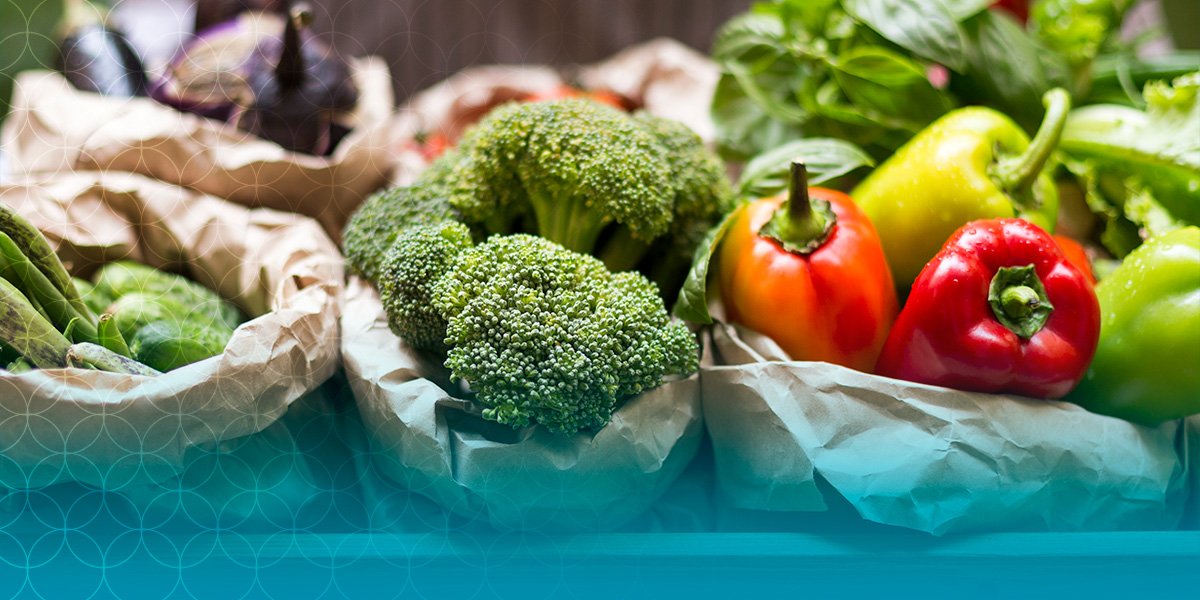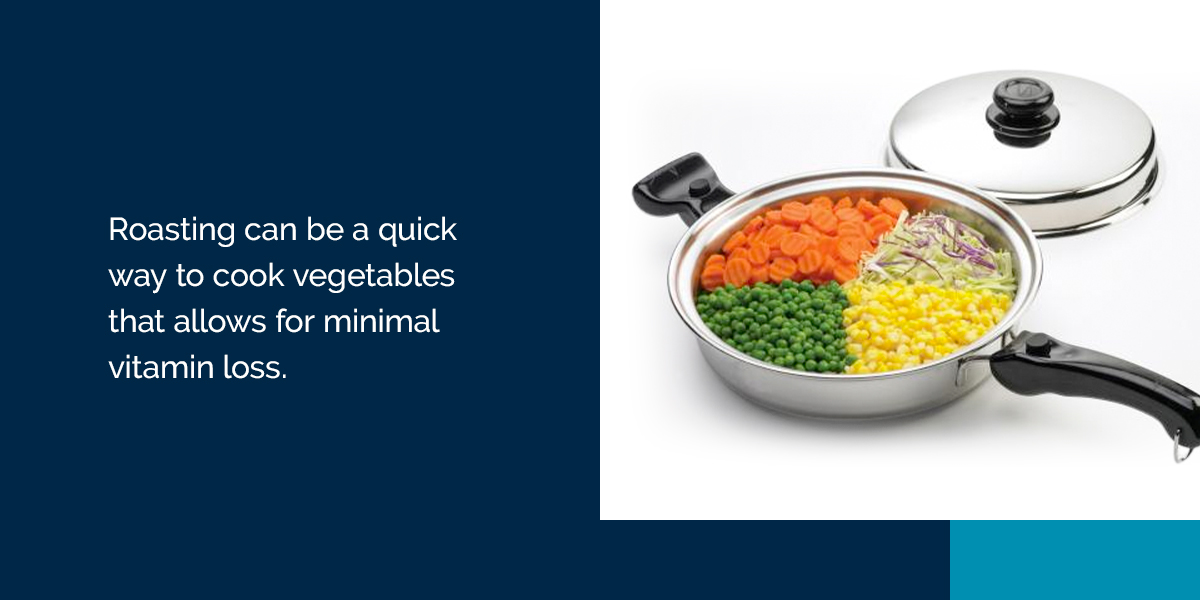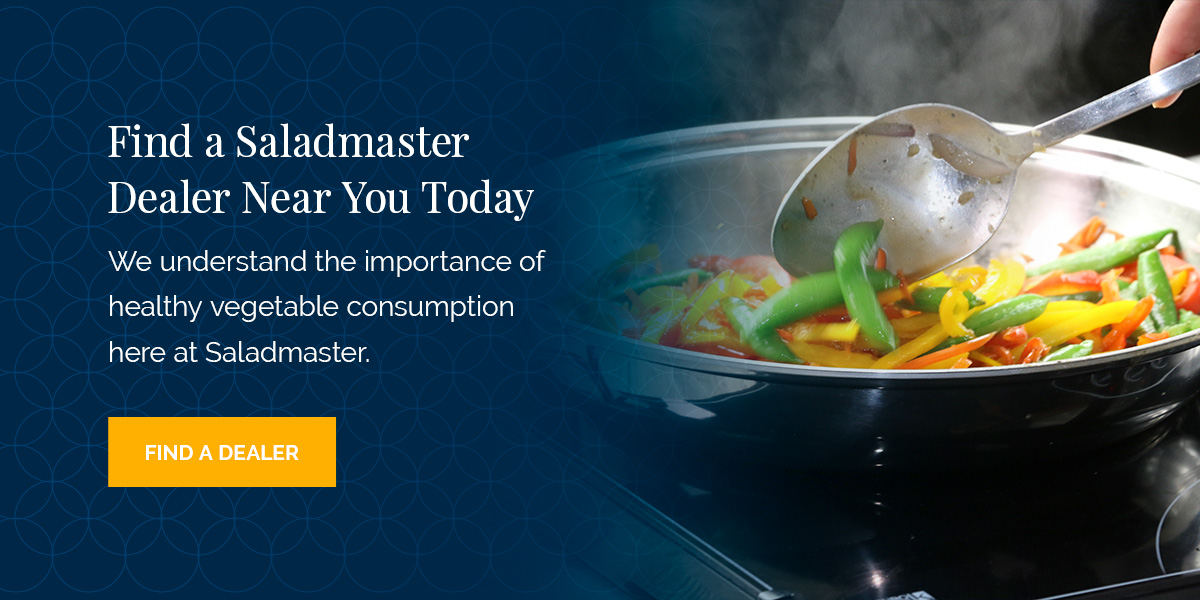Raw Vegetables vs. Cooked

Multiple factors can affect a vegetable's nutritional value, including your cooking heat, method and time. Whether you choose to eat the vegetable raw or cooked can also impact its overall nutrition.
Are raw vegetables better for you than cooked ones? We aim to answer this question by exploring the benefits of both raw and cooked vegetables. We'll also provide some tips for cooking your vegetables properly. Let's get started!
Are Raw Vegetables Healthier Than Cooked Vegetables?
The idea that raw vegetables are always more nutritious than cooked vegetables is a common misconception. The truth is that you should try to incorporate both raw and cooked veggies into your diet as much as possible.
Cooking certain veggies can break down their cell walls to release more of their nutrients. When cooked, these vegetables can provide more antioxidants like lutein, beta-carotene and lycopene than when you eat them raw. Cooking vegetables can also increase your mineral intake. For instance, heating Swiss chard, spinach and beet greens can release their high amounts of calcium. Cooking these vegetables can also provide higher amounts of additional minerals like iron and magnesium.
With that said, some vegetables are more nutritious raw than when cooked. For example, cruciferous vegetables like cauliflower, cabbage, broccoli, brussels sprouts and bok choy contain a chemical called myrosinase. When you cut or chew these vegetables raw, their myrosinase creates a chemical reaction that produces sulforaphane, a compound with antioxidant properties. Raw vegetables also offer more fiber, which can aid digestion, maintain blood sugar and lower cholesterol.
Additionally, certain vegetables offer different vitamins depending on whether they're cooked or raw. For example, raw spinach is an excellent source of vitamin C that provides more vitamin A when you cook it.
Benefits of Cooked Vegetables
As we mentioned above, cooking a vegetable can reduce the rigidity of the cell walls, making it easier to digest and absorb its nutrients. Let's look at some different vegetables and the benefits they provide when you cook them:
- Carrots: Cooked carrots contain more beta carotene than raw ones. This antioxidant can convert to vitamin A, which improves eye, bone and reproductive health.
- Tomatoes: Cooking tomatoes can increase their lycopene, which studies have shown may reduce the risk of cancer and heart disease.
- Asparagus: Asparagus is full of vitamins A, C and E. Research has shown that cooking asparagus can boost antioxidant properties by 16%-25%.
- Mushrooms: Cooking mushrooms can also boost their antioxidant properties. Additionally, cooked mushrooms contain higher amounts of water-soluble vitamins like niacin and vitamin C than raw ones.
- Spinach: Cooking spinach can reduce its oxalic acid — which can interfere with the body's calcium and iron absorption — and maintain healthy folate levels.
- Kale: Raw kale contains isothiocyanates, which can prevent the body from receiving the iodine it needs for the thyroid. Cooking your kale can diminish enzymes that stimulate this potentially harmful effect, reducing antioxidant loss.
- Eggplant: Lightly cooking your eggplant can help your liver break down cholesterol more easily and reduce its presence in your bloodstream.
Cooking Your Veggies Properly
Now that we've explored the question of whether cooked or raw vegetables are better for you let's cover some essential tips for retaining your veggies' nutritional benefits during the cooking process.
1. Cook Your Veggies Quickly

Cooking vegetables quickly allows less time for vitamins and other nutrients to escape. Roasting can be a quick way to cook vegetables that allows for minimal vitamin loss. However, roasting or baking veggies at longer times and higher temperatures can cause a significant reduction in their vitamin concentration.
2. Avoid High Cooking Temperatures
Try to avoid cooking vegetables at high temperatures, as this can affect their nutrient composition. High heat can reduce nutrients like folic acid, vitamins B1 and C and others while increasing acrylamide production. Meanwhile, low-temperature cooking can help preserve nutrients and vitamins in vegetables, ensuring they don't overheat and making them easier to digest.
3. Consider Stir-Frying
Frying methods like pan-frying, shallow-frying, sautéing and deep-frying often boost salt, calorie and fat content. However, stir-frying tends to be the healthiest frying technique. It's a quick way to cook your vegetables in a matter of minutes, preventing the loss of valuable nutrients and minerals.
4. Avoid Excessive Oils
Cooking your vegetables with oil can increase fat, salt and calories, depleting their nutritional value. Oil may add texture and flavor, but it can also spike blood sugar levels and interfere with digestion. Oil-free cooking combined with short cooking times and low temperatures can help protect those essential minerals and vitamins.
Is Microwaving Safe?
While microwaving may be a fast, hassle-free cooking method, it's pretty unreliable when it comes to preserving vitamins and nutrients, especially vegetables. Minerals and vitamins are incredibly sensitive to heat and a microwave oven can reach up to 1,200 degrees Fahrenheit. Just like the other high-temperature cooking methods we mentioned above, this can significantly reduce the vegetable's nutritional value.
While microwaving isn't necessarily an unsafe cooking technique, we don't recommend microwaving your vegetables if you want to reap their full nutritional benefits. It's best to steer clear of methods like steaming and boiling for the same reasons.
Keep Your Vegetables' Nutrients With Saladmaster®
At Saladmaster, our cutting-edge waterless cooking technology omits the need for fats and oils, helping to retain your veggies' natural nutrients without unnecessary calories. You can enjoy a variety of benefits with our advanced Vapo-Valve™ semi-vacuuming cooking technology:
- Faster cooking times: Saladmaster's efficient cookware significantly reduces cooking times, allowing you to enjoy your veggies sooner.
- Less overheating: The built-in Vapo-Value clicks when the temperature exceeds the maximum cooking temperature, allowing for more precise cooking and preventing overheating.
- No water, oil, butter or fat: You don't have to add water, oil or butter to your food with Saladmaster cookware, allowing for more nutritious dishes without sacrificing flavor. Our semi-vacuum cooking method preserves natural flavor by locking in moisture and cooking the food in its own juices and fats.
- Protects valuable nutrients: Saladmaster's waterless cooking process protects valuable minerals and vitamins, retaining up to 93% of your recipe's nutrients.
Find a Saladmaster Dealer Near You Today
We understand the importance of healthy vegetable consumption here at Saladmaster. That's why we specialize in innovative cookware designed to protect vitamins and nutrients, reduce unnecessary oil and fat and accelerate the cooking process — all while preserving the delicious flavors you love.
If you're interested in gaining optimal nutritional benefits from your vegetables and other dishes, we invite you to find a Saladmaster dealer near you today!

54785